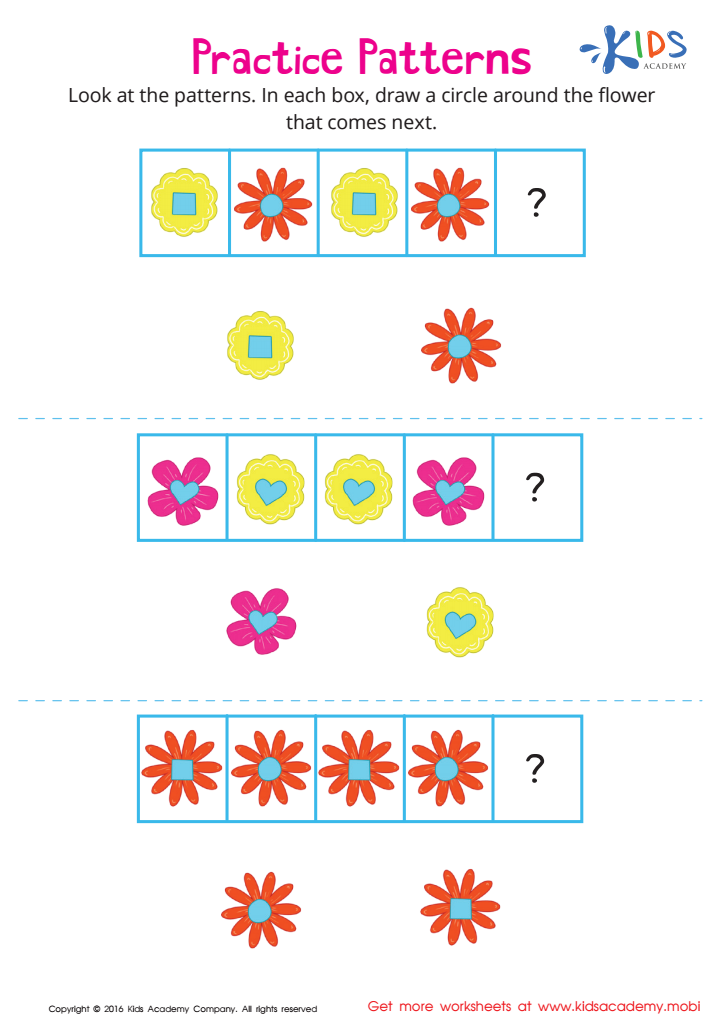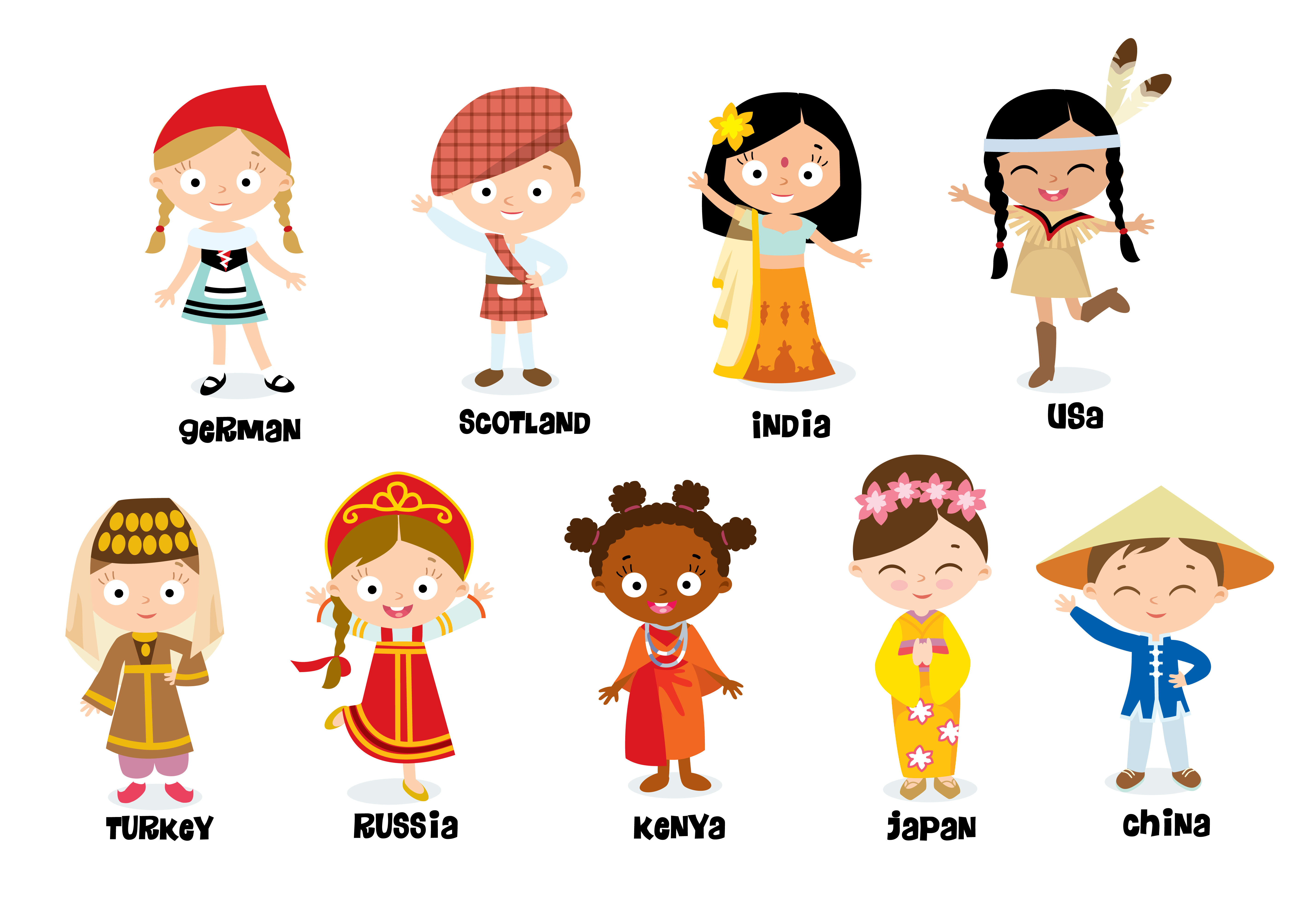Patterns Worksheets for Ages 3-4
6 filtered results
-
From - To
Introducing our vibrant "Patterns Worksheets for Ages 3-4", perfectly crafted to spark the joy of learning in young minds! Dive into a world where fun meets education, guiding little learners through a series of engaging and colorful pattern activities. Designed by experts in early childhood education, these worksheets are tailored specifically for toddlers, helping them recognize, repeat, and create patterns in a playful setting. Whether it’s shapes, colors, or objects, our Patterns Worksheets for Ages 3-4 are the ideal stepping stone for developing critical thinking and problem-solving skills. Embark on this exciting educational journey and watch your child’s imagination and cognitive abilities flourish!
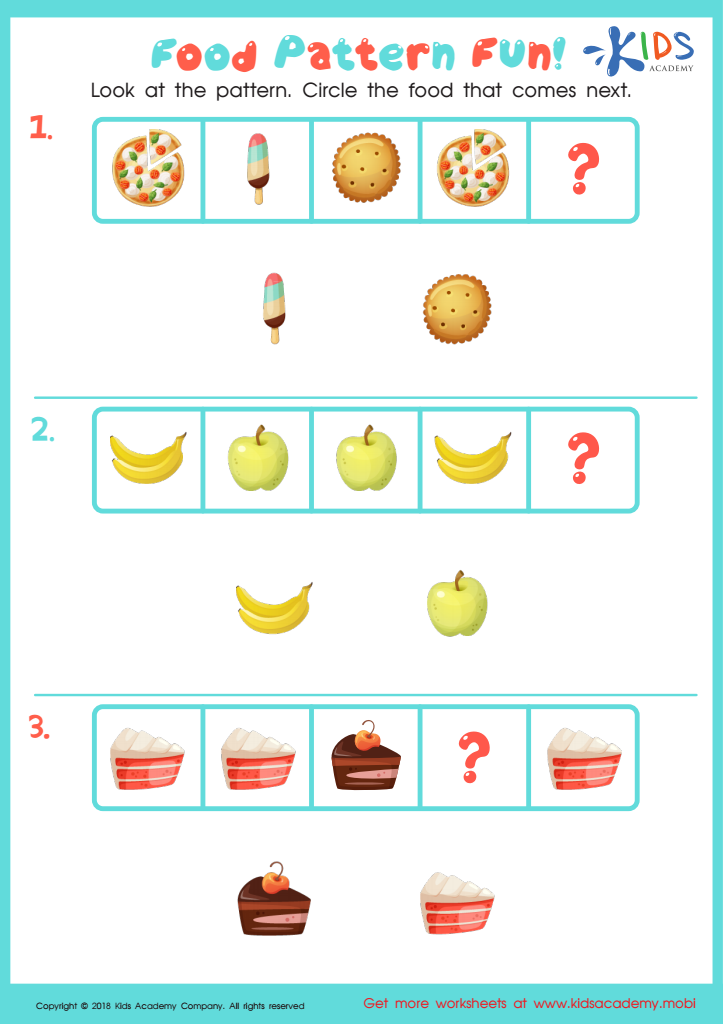

Food Pattern Fun Worksheet
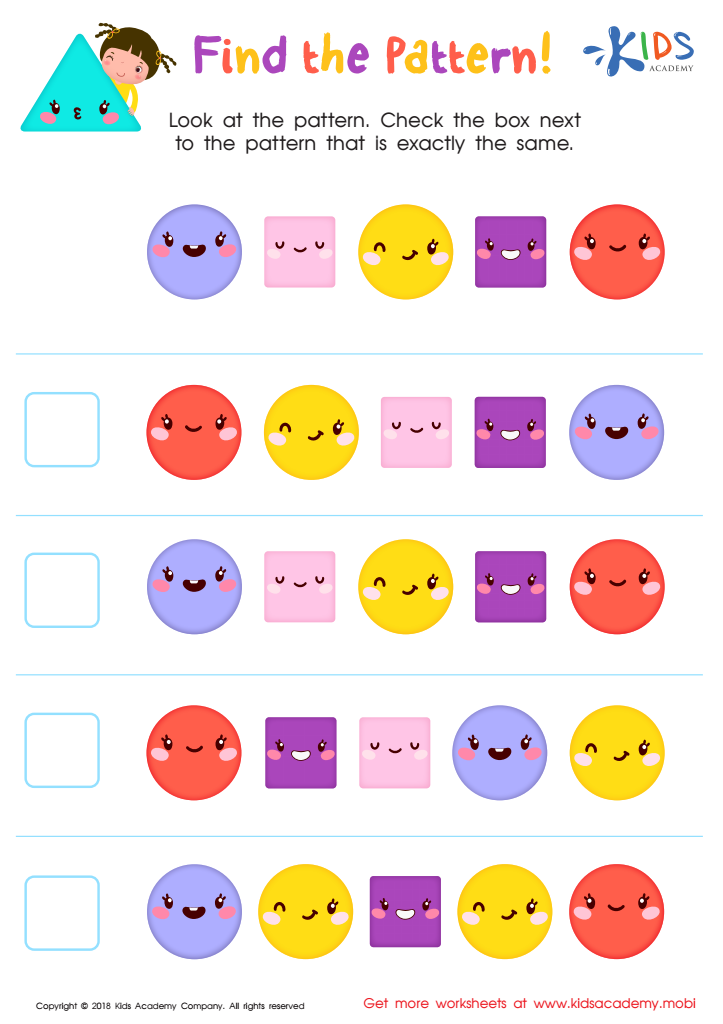

Find the Pattern Worksheet


Make the Same Pattern Worksheet
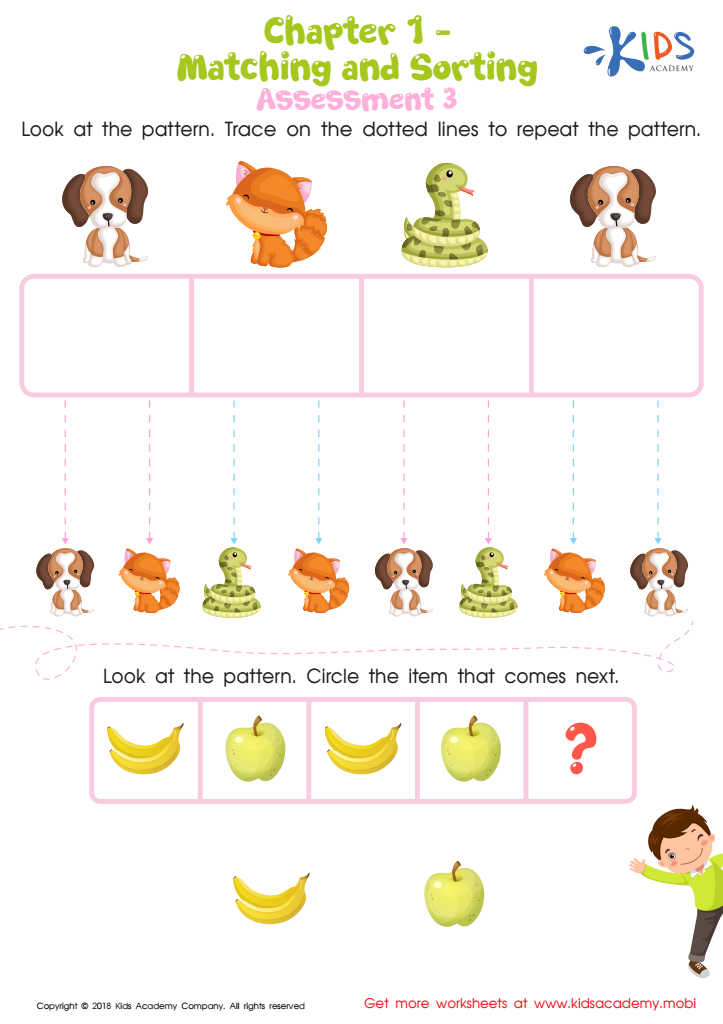

Matching and Sorting for Preschool: Assessment 3 Worksheet
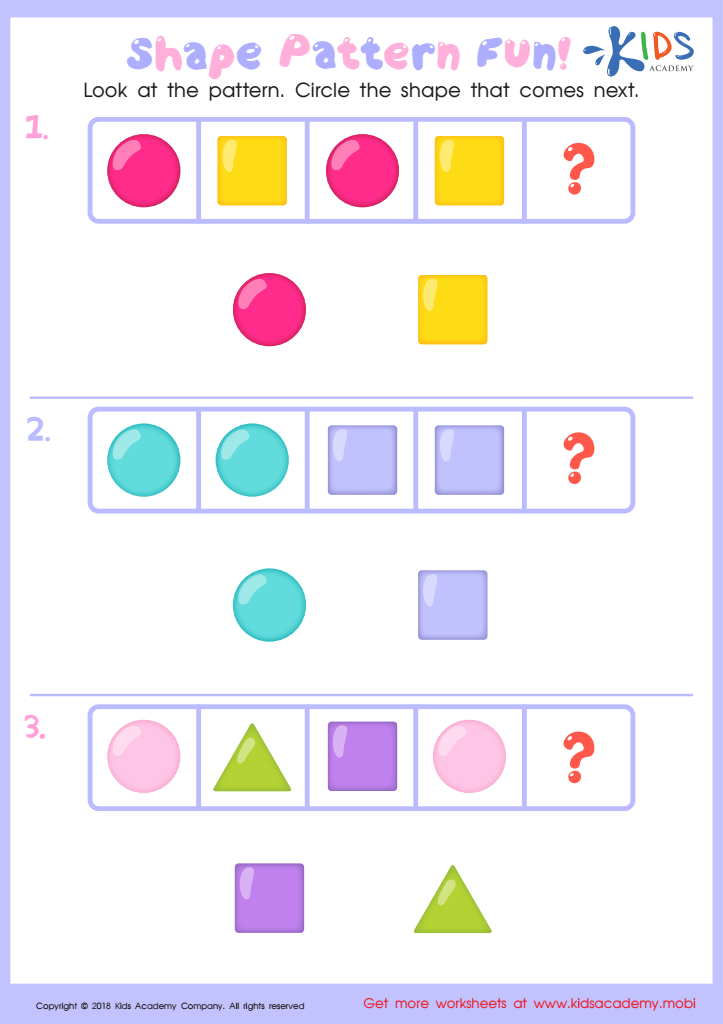

Shape Pattern Fun Worksheet
Worksheets on Patterns for Ages 3-4 are an invaluable tool in laying the foundation for early mathematical understanding. At this crucial developmental stage, children's minds are incredibly receptive to learning through patterns, a fundamental concept that echoes throughout math and science education. These specialized worksheets are designed to captivate young learners' interests and adapt to their learning pace, making the discovery of patterns an exciting adventure.
Introducing Patterns for Ages 3-4 through worksheets helps to sharpen children's observational skills. They learn to notice similarities, differences, and repetitive sequences in objects and events around them. This not only enhances their cognitive ability to predict and analyze but also boosts critical thinking and problem-solving skills early on.
Moreover, engaging with patterns through these creatively crafted worksheets equips young learners with the language to describe their world. It aids in building their vocabulary as they learn terms like "next," "after," and "sequence," which are essential for effective communication and academic success in the years to follow.
Lastly, by working through Patterns for Ages 3-4 worksheets, children also develop fine motor skills. Tracing, drawing, and coloring patterns improve hand-eye coordination and prepare them for writing. In conclusion, these worksheets are not just about understanding mathematics; they are a holistic tool for early childhood development, setting a strong foundation for lifelong learning.
 Assign to My Students
Assign to My Students
